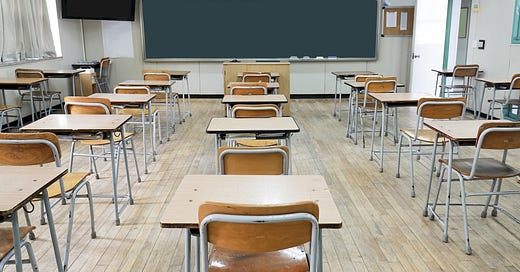K-12's Student Accountability Crisis
Public schools are increasingly failing to enforce academic and behavioral standards
I have a short article up in City Journal co-authored with sociologist Kevin McCaffree on the student accountability crisis in K-12 education. We argue that while public schools have long struggled to hold teachers accountable thanks to tenure and union protections, increasingly they are even failing to hold students responsible for their behavior, attendance, and academic performance:
Consider student behavior. Teachers, principals, and superintendents have expressed alarm at the rising number of students acting in disruptive and even violent ways. “Students throw furniture, overturn desks, shout insults, threaten violence, and curse out teachers, support staff, and classmates,” reports Cindy Long, senior writer for NEA Today. This permissive school climate has been facilitated by major federal- and state-led efforts to reduce suspensions and expulsions, out of concern that minority and disabled students get disciplined at disproportionately high rates.
In lieu of traditional disciplinary measures, schools direct students to participate in quasi-therapeutic interventions intended to address the trauma and mental-health challenges that purportedly cause behavioral issues. While arguably well-intentioned, practices like “restorative circles” (teacher-guided group counseling) and “restorative conferences” (facilitated conversations between a victim and offender involved in a conflict) have taken up valuable class time while failing to improve student behavior.
Attendance, too, has suffered under this more lenient approach. During the Covid-19 pandemic, schools understandably relaxed attendance requirements. But long after the pandemic’s peak, many schools still hesitate to enforce their pre-pandemic attendance policies, such that one in four students is now chronically absent.
Academic standards have similarly eroded. Schools are increasingly adopting practices that inflate grades, such as allowing students to retake tests, accepting late assignments without penalty, giving credit for minimal effort, and even refusing to give failing grades. One study of 33,000 student grades found that 40 percent were inflated beyond what might have been expected, given those students’ standardized test scores. Standardized testing itself is falling out of favor among many education officials, who now advocate for more subjective measures of success to boost the passing rate for lower-performing students.
We go on to discuss causes and solutions in broad terms. Read here.




